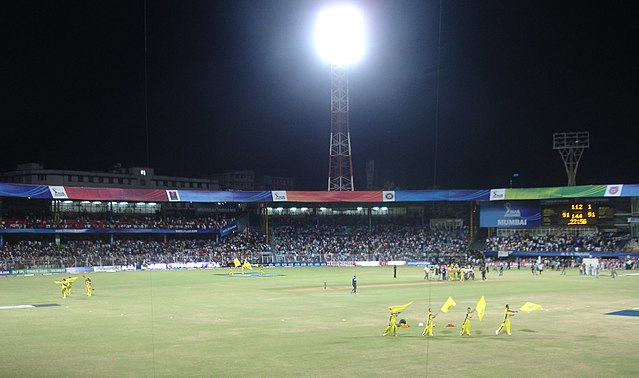The IPL is suspended as India’s Covid-19 crisis continues
On 4 May, with less than a month left in the tournament, the Indian Premier League (IPL) was suspended after members of at least three teams tested positive for Covid-19. This year, the IPL has been operating a system where teams are confined to bio-bubbles and tour India around six different grounds. However, with the humanitarian crisis currently unfolding around the pandemic in India it was no surprise to see the tournament be put on ice.
The IPL began to unravel with the announcement a day before the suspension that two Kolkata Knight Riders players and tested positive. Over the next 24 hours further positive tests were reported from the Chennai Super Kings and Sunrisers Hyderabad camps.
Coming only a week after The Board of Control for Cricket in India (BCCI) had assured stakeholders that the bubble was totally safe, this shattered the illusion that it was impervious. Confidence in the bubble had already been slightly shaken by the earlier departure of some international players, including most notably the Australian Adam Zampa, who spoke of feeling vulnerable in the bubble.
Despite the BCCI receiving widespread criticism for continuing the tournament in these circumstances, they had initially said the tournament would continue in order to provide entertainment for those stuck at home. This has been very clearly retracted, and the BCCI directive for all players to return home has put to bed any chance of the tournament restarting soon.
It seems possible that the tournament could be moved to the UAE as with last year
The troubles with the IPL’s suspension are manyfold. Finding a time in the calendar to fulfil the rest of the tournament is difficult with the Indian touring England throughout the summer before returning to play the T20 World Cup in October. September seems the only likely space to hold the tournament, and it would be bold of anyone to predict how under control the pandemic in India will be by then. It seems possible that the tournament could be moved to the UAE as with last year. This would have a knock on effect as the T20 World Cup, one month later, would also be moved from India.
Even if the tournament is somehow relocated or restarted in September, there is no way to know what shape the teams will be in by then. Many of the leading international players, both Indian and international, have been in bubbles for the past few months and will be for the next few. Bubble fatigue is already a much-acknowledged issue for top players: how many will want to rejoin another bubble before the T20 World Cup?
There is also the question of form. Some players such as MS Dhoni and AB de Villiers play little cricket outside of the IPL, so will have to work themselves back into playing. Leading players are also heading to England to spend months playing test cricket. Switching between formats is easier for players now more than ever, but even for the likes of Indian captain and great Virat Kohli, months of test cricket in England is not great preparation for resuming an IPL season.
The suspension of the IPL also will deal the BCCI a hefty financial blow. This extends beyond the financial though. The BCCI are the world’s leading cricket body, and it is no small loss of face to have their flagship domestic tournament suspended. Broadcasters also cannot be thrilled to have lost out on big audiences for the IPL games. On this note, and on a purely personal level, there has been an unintended bonus to Sky not having IPL games to show.
The cricket, as we have seen in other countries hit by the pandemic, will return, but the IPL’s suspension is a rather insignificant part of a larger and horrific crisis
So that they put some cricket out, Sky have started broadcasting County Championship games far earlier than usual. They even have big shots like Michael Atherton and Nasser Hussain turning up to give their expert opinion. Here the IPL’s loss is county cricket’s gain.
It has also been heartening to see both teams and individual players donating to help the effort against the pandemic in India. Ultimately though, I think we should take some perspective on the IPL’s suspension. On the day of writing (8 May), over 4000 Covid deaths have been reported with 400,000 new cases in India. These reports have been viewed as gross underestimates of the real number. Testimony from friends has corroborated this bleak image of a tragic human crisis currently unfolding in the country. The cricket, as we have seen in other countries hit by the pandemic, will return, but the IPL’s suspension is a rather insignificant part of a larger and horrific crisis.

Comments